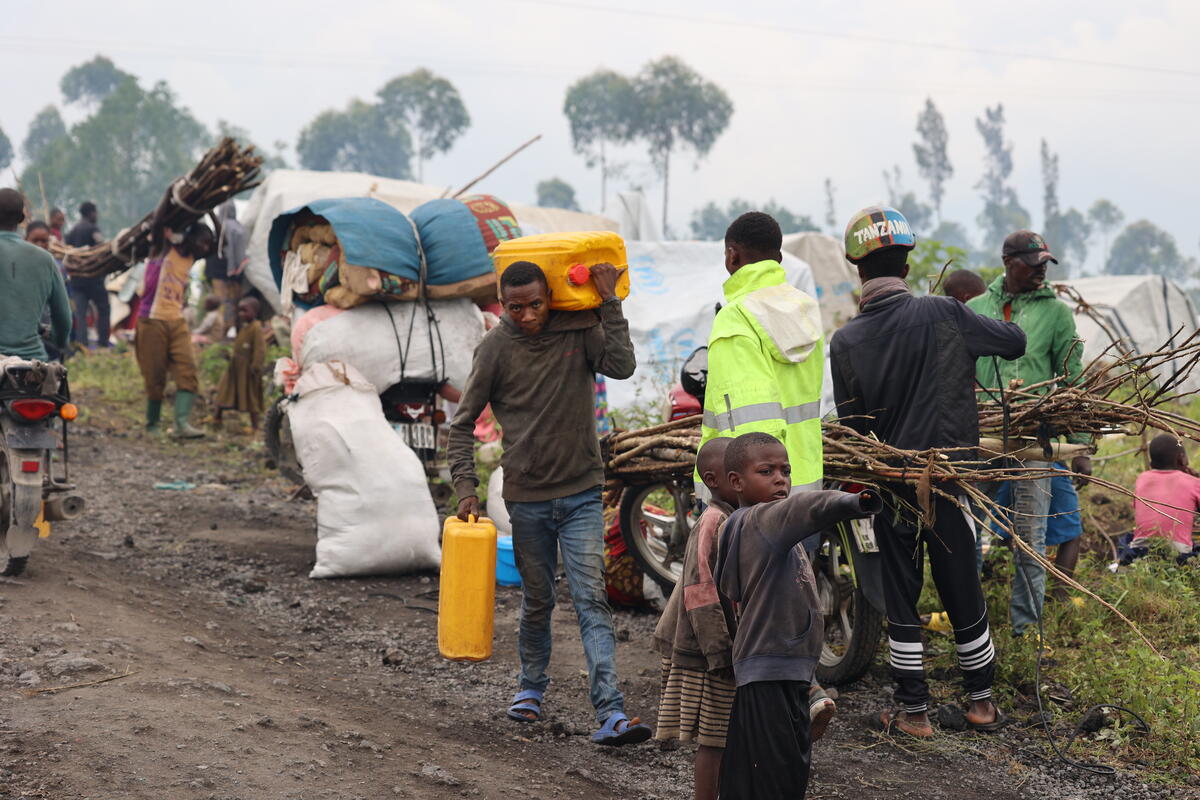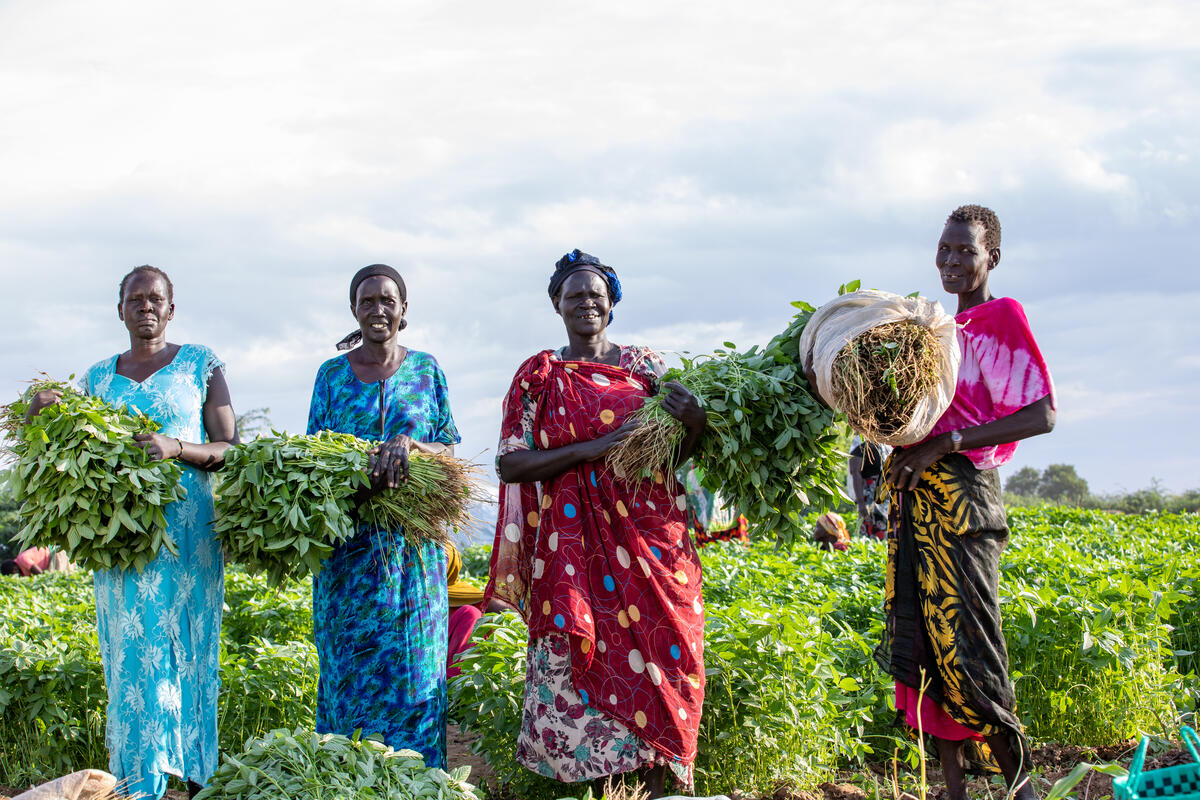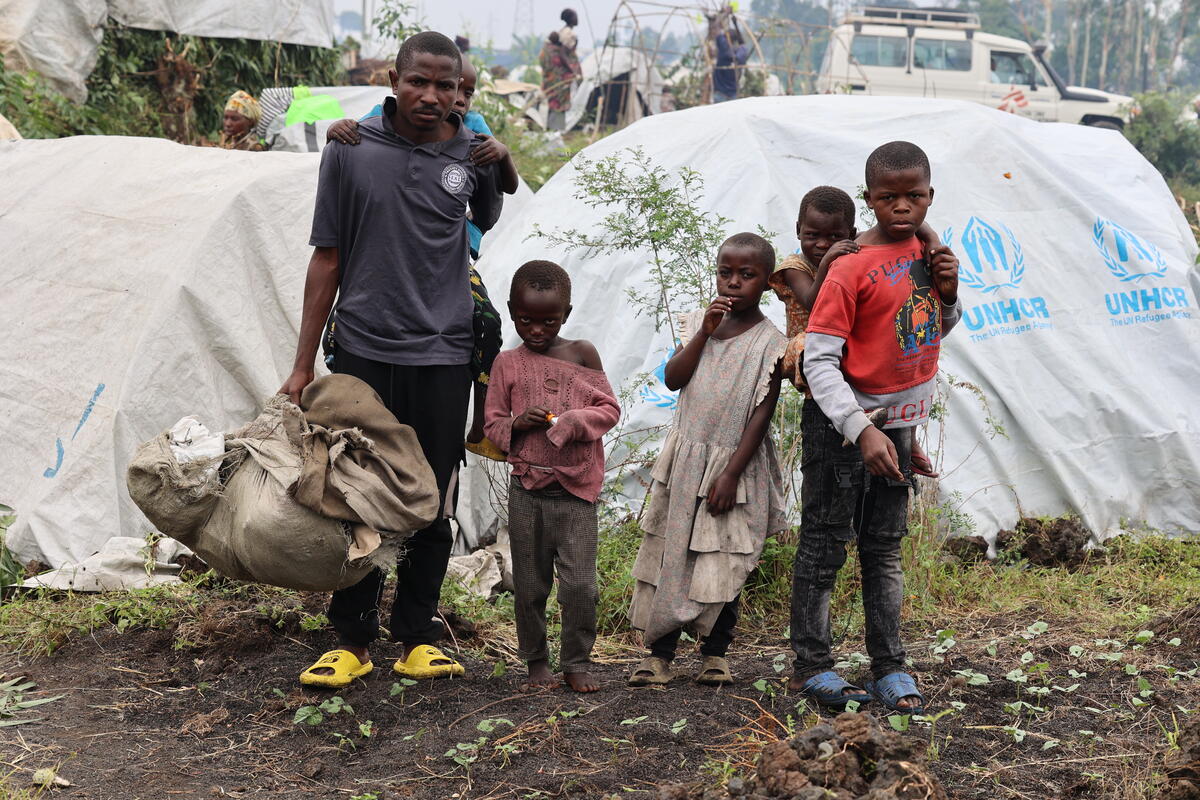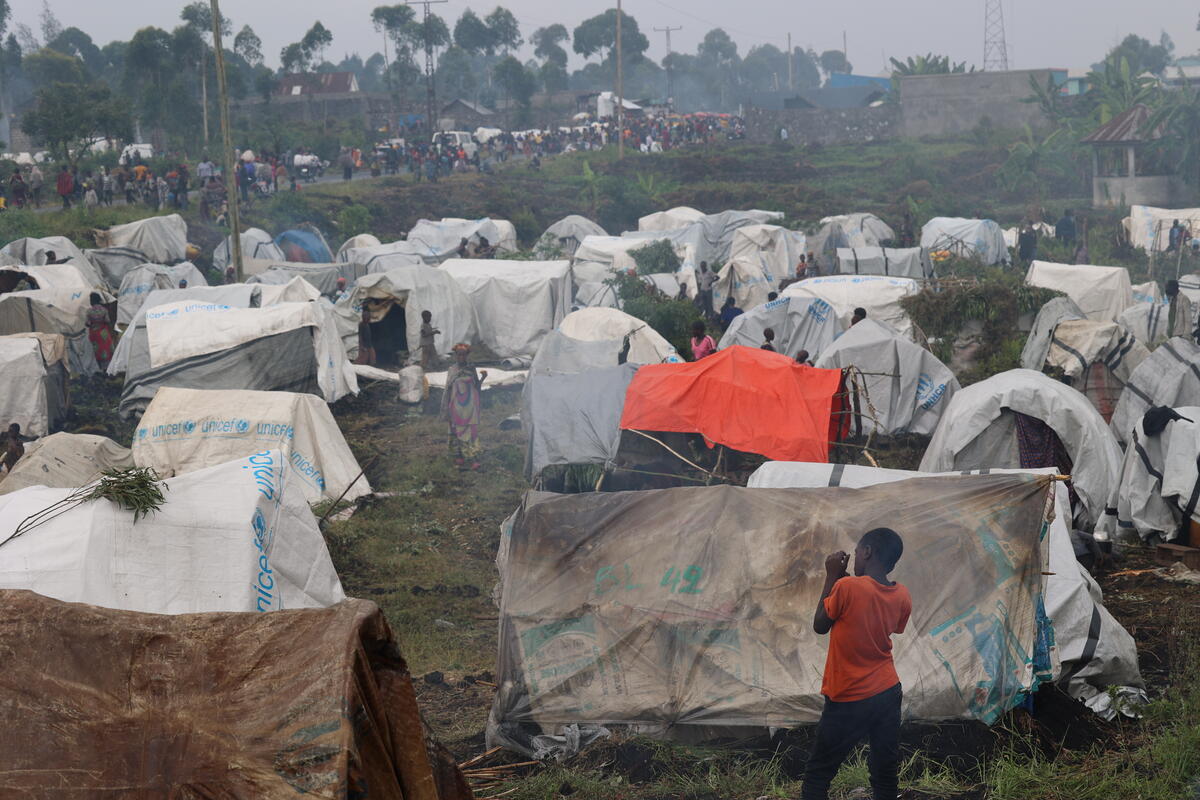Forced returns from Rwanda to DR Congo continue, albeit at slower rate
Forced returns from Rwanda to DR Congo continue, albeit at slower rate

KIGALI, Rwanda, September 10 (UNHCR) - More than 6,000 Congolese refugees in Rwandan camps have returned home under duress less than two weeks after the start of an apparent forced repatriation. The operation has slowed down in recent days, but is still continuing despite a UNHCR protest to the Rwandan government.
According to statistics attributed to the Rwandan authorities, more than 6,000 Congolese refugees have left Rwandan camps for north Kivu in the Democratic Republic of the Congo (DRC) since August 31. The return operation - organised jointly by the government of Rwanda and the rebel group, Congolese Rally for Democracy (RCD/Goma) - has been focused on Gihembe camp in Byumba prefecture, northern Rwanda, and Kiziba in Kibuye prefecture, western Rwanda. Both camps host a total of 31,923 refugees.
Many refugees have reported being pressured by Rwandan authorities to leave the camps. They said local officials were warning that the ongoing operation was their last chance to return home with assistance, and that non-governmental organisations would cease to provide aid inside Rwanda. UNHCR has continued to counter these reports.
Last Thursday, UN High Commissioner for Refugees Ruud Lubbers wrote to Rwandan President Paul Kagame to express concern about the forced returns to north Kivu. In his letter, he requested that the Rwandan government end the operation, which he termed "neither voluntary nor sustainable".
By the end of last week, the number of refugees returning had declined sharply following a visit to both camps by the Minister of State for Local Government and the UNHCR Representative in Rwanda. For example, some 85 refugees in Kiziba boarded trucks on Sunday and Monday, compared to nearly 2,000 in one day at the start of the operation, according to government figures. In Gihembe, an average of 300 refugees are leaving the camp daily compared to a daily average of 600 before the joint government/UNHCR visit.
During their visit to the camps, the UNHCR and government representatives explained to refugees that their return to north Kivu should be voluntary. The UN refugee agency assured them that it would continue to provide protection and assistance to refugees who did not wish to return home, and that return assistance would be given to them whenever they were ready to go home.
In a separate visit last week, a UNHCR team went to a transit centre in Kichanga, 80 km north of Goma, eastern DRC, where recent returnees from Rwanda had been settled by local authorities. The Congolese returnees, comprising mostly women and children, were being accommodated in three old factory buildings without doors, windows or proper roofing.
Of the 11 people the UN refugee agency interviewed in Kichanga, eight said they had been forced to leave Rwanda. Two men said they had left voluntarily. Another UNHCR team spoke to former refugee committee members who said their return had been organised on a voluntary basis. But the team reported that one old man who was not satisfied with the move was prevented by other refugees from making a statement.
Another UNHCR team visiting Kahe, a village 2 km from Kichanga, reported the construction of some 100 small shelters. Returnees said they had been advised by local authorities to settle in this area. Some of the new arrivals were being accommodated in the local church, schools and with foster families in Kichanga.
Some refugees had proceeded to their homes in Mweso, some 12 km from Kichanga.







